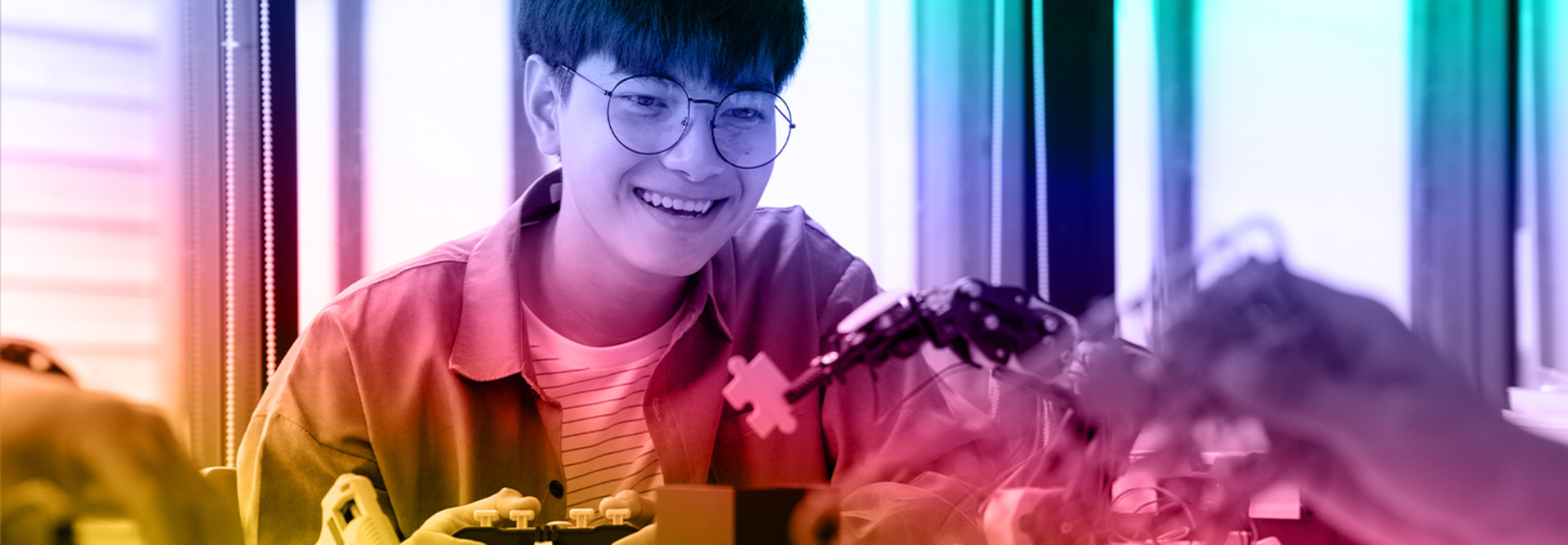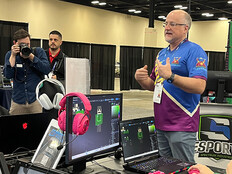STEM fields notoriously lack diversity, with minorities largely underrepresented in these occupations. Preparing students to explore and pursue these careers at the K–12 level can lead to more diversity in these workplaces in the future.
Careers in technology already offer some of the best opportunities for LGBTQ individuals. To prepare students for these careers, K–12 schools must provide access to opportunities that allow learners to feel safe while building their tech skill sets.
37.5%
The percentage of LGBTQ tech employees who witnessed harassment in the workplace, compared with 8 percent of non-LGBTQ tech employees
Source: teamblind.com, “40% of LGBTQ+ Professionals Witnessed Discrimination in the Workplace,” June 28, 2019
These opportunities can be found through organizations that specifically encourage LGBTQ youth to build their tech skills and help schools create a more inclusive learning environment. Here are five resources schools can rely on and share with students when building STEM lessons:
1. Lesbians Who Tech awards a coding scholarship to K–12 students
To support LGBTQ students in pursuing tech careers, K–12 schools should share relevant scholarship opportunities, such as the Edie Windsor Coding Scholarship. Lesbians Who Tech offers this scholarship to queer female and nonbinary students interested in studying technology.
The namesake of the award, Edith “Edie” Windsor, worked as a tech leader at IBM before founding her own software consulting firm. In 2013, she won a landmark case over the Defense of Marriage Act, paving the way for marriage equality in the United States.
The scholarship covers 50 percent of the recipient’s higher education tuition, connects them to a network of mentors as well as past recipients, and assists them in searching for tech jobs after graduation.
RELATED: CDW announces scholarship opportunities through new Legacy Excellence Program.
2. Gender-Inclusive Biology develops curriculum tips for educators
Gender-Inclusive Biology is an initiative organized by three trans K–12 educators. It aggregates resources and guidance for K–12 educators with the goal of creating a more inclusive biology curriculum.
Educators can use the resources from Gender-Inclusive Biology to help students forge a better path to STEM careers. These resources also help make K–12 schools safer spaces for diverse student populations.
3. oSTEM offers scholarships, mentorship and other resources
The nonprofit Out in Science, Technology, Engineering, and Mathematics (oSTEM) defines itself as the organization serving LGBTQ students and professionals in STEM. To achieve its mission, this organization empowers the LGBTQ community with an abundance of resources that educators can share with K–12 students.
Click the banner to access customized advice and resources when you register as an Insider.
oSTEM offers scholarships as well as a six-month mentorship program. Students can register on the nonprofit’s website to be matched with a mentor working in STEM. This gives students a direct connection to diverse professionals in the field.
In addition to helping LGBTQ students build their futures in STEM, the organization’s website also offers numerous other resources and hotlines for educators to bookmark and share with students.
4. Maven Youth provides tech summer camps for high school students
K–12 students between the ages of 14 and 19 can attend Maven Youth’s tech summer camps, which connect tech professionals to LGBTQ youth to further their interest in technology careers.
Maven Youth also offers virtual workshops, youth leadership opportunities and tech career readiness programs to encourage LGBTQ students to pursue careers in STEM. Many of the programs teach or enhance coding skills and help students develop into tech leaders.
READ THE INTERVIEW: Coding with Culture founder speaks on creating culturally relevant STEM.
5. LGBTQ+ STEM Cast introduces listeners to STEM professionals
Although not explicitly an organization, the podcast LGBTQ+ STEM Cast — geared to amplifying and sharing the voices of LGBTQ scientists — was created by Felix Berrios, an undergraduate student at University of Puerto Rico–Humacao. Berrios co-hosts the podcast with Annabel Gong, a master’s student at the University of San Diego.
As students themselves, these creators reach K–12 listeners through their own stories and by sharing the stories of LGBTQ scientists, whom they interview about their work, their lives and where their passions began. Educators can use the podcast as a resource in their classrooms to encourage students to pursue their own careers in the sciences.
I going to make a greatest artwork as I can, by my head, my hand and by my mind./Getty Images











